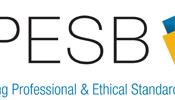Independence may be defined in a professional context as a state in which one is self-reliant and not easily influenced by others. Professionals rely upon their own expertise and judgment rather than opinions, biases, or emotions of other persons. Independence, as an ethical concept, is prominent in the accounting profession. Indeed, all professionals should be independent in that they should not subordinate their judgment to make a client happy.
Using some of the ethical concepts we have considered earlier, we may say that the professional should give no utilitarian weight to the happiness of the client. Some professionals, including accounting professionals, may succumb to this temptation. However, in the realm of public accounting, any consideration of the client's interests must be subordinated to a greater duty--the duty owed to third parties and to the public.
Let us consider the medical profession as an example of how utilitarian weight may be given to the well-being of the client as opposed to the happiness of the client.
Suppose a patient comes to his doctor complaining of pain and requests a strong prescription painkiller by name. In the doctor's judgment the pain is illusory. Moreover, she knows that the painkiller requested by the patient is potentially addictive. In her judgment the risks of prescribing such a medication far outweigh any benefits to the patient. She therefore ought to refuse to grant the request even if she knows that this will displease the patient and that he may choose another doctor.
The sort of independence illustrated by this case means independence from the expressed will of the client. Because a key tenet of the whole notion of professionalism is that the professional has greater experience, ability, or familiarity with a certain area than a client, the professional should not subordinate professional judgment to client...


